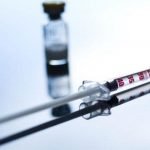Brain Sciences UNSW is a research Institute comprised of researchers from the basic neurosciences, psychiatry, psychology, drug and alcohol, neurology, neurosurgery and other fields of science. Its constituent members are based in the UNSW faculties of Medicine, Science and Engineering, and a number of UNSW-affiliated independent research institutes (Neuroscience Research Australia (NeuRA), Black Dog Institute and the Garvan Institute for Medical Research).
The collaborative initiative aims to facilitate cross-disciplinary research to enhance understanding of normal and abnormal brain functioning. Disorders of brain functioning, as manifest in mental illness and disorders that involve the neurological system, comprise one of the leading causes of disability and disease burden in Australia and worldwide. UNSW, the Garvan and NeuRA have significant strengths in multiple sclerosis (MS) research.
MS Research Australia CEO, Dr Matthew Miles, was asked to present at the most recent Brain Sciences UNSW event; which focussed on MS. The other speakers were Professor Arun Krishnan from the Prince of Wales Hospital and Professor Steven Lord from NeuRA who gave great presentations on “Drug treatment of physical disability in MS” and “Step mat training exergames for fall prevention in people with MS” respectively. The Chairperson for the event was the Executive Director and CEO of NeuRA, Professor Peter Schofield. The audience was made up mostly of senior academics, younger researchers and PhD students from UNSW and affiliated institutions.
Dr Miles was asked specifically to highlight many of the key collaborations that MS Research Australia has been involved with or lead over the last 10 years. It is often said by those experienced in medical research that “if you want to take small steps – compete, if you want to take giant leaps – collaborate”. MS Research Australia has a good reputation in the sector as being very proactive and successful in this arena, both nationally and globally. It leverages the strengths of Australian MS researchers, helps to avoid unnecessary research duplication and harnesses the incredible diversity we have in Australian MS research. Our robust competitive research funding program creates an even playing field for all MS researchers and ensures only the best research is funded has also been central to that enviable reputation.
The areas of our focus during the talk included;
- Ausimmune study – multicentre Australian study, following over 300 people diagnosed with a first episode of MS-like brain inflammation and followed over 10 years. Provided a greater understanding of the potential role of EBV virus and confirmation of other environmental factors such as Vitamin D, sunlight, smoking, diet and exercise.
- ANZgene study (including collaboration with the International MS Genetics Consortium) – collaboration of over 40 researchers in ANZ as well as over 40,000 DNA samples collected globally. We now know more than 110 genes involved in determining susceptibility to MS. Identified potential new drug targets. Significant genetic overlap with other autoimmune diseases.
- Vitamin D MS Prevention trial – 20 sites in ANZ, over 90 people already recruited for study (aiming for 240 patients). Double blind, placebo-controlled, randomised study to test whether taking vitamin D supplements may be useful as a strategy to prevent MS in those at high risk, and if so, at what dose?
- MS Research Australia – JDRF dual fellowship – unique partnership between two not for profit organisations with strong synergies, looking at the genetic overlap between both MS and type 1 diabetes. Both groups approached the one single funder (Macquarie Group Foundation) successfully for full funding for the prized cross-disciplinary Fellowship.
- International Progressive MS Alliance – 14 countries now involved worldwide. MS Research Australia playing a central role in the Alliance as a managing member. €22 million pledged so far and dedicated entirely to finding solutions for people with progressive disease. Over 480 MS researchers worldwide involved in the last funding round. An outstanding example of a global alliance with a shared common goal.
- Kiss Goodbye to MS – our national DIY fundraising campaign founded by MS Research Australia which has been adopted by 9 other countries this year with at least 4 more (including the UK and Canada) coming on board in 2017. The only fundraising campaign specifically for MS research to ever have a global footprint.
It was an excellent opportunity for MS Research Australia to convey some of the collaborative partnerships and research initiatives that we have instigated over the last decade. The time given over to discussion at the forum was excellent with many academics and students seeking updates and more information on the Vitamin D MS Prevention Trial or more detailed scientific information on the partnership with JDRF. Many also asked about the common pitfalls of working within a global alliance and noted that both MS Research Australia and our Australian MS researchers have been strongly and successfully involved with a number of them. It was noted that the International Progressive MS Alliance has now a growing footprint in the academic literature with many papers on global research initiatives and progressive disease referencing the Alliance and its ability to galvanise and convene the best researchers from around the globe and dedicate them to a common unmet need.
All speakers at the event were unanimous in noting the extremely positive changes in the treatment landscape for many people with relapsing-remitting MS over the last 20 years but cautioned that much hard work remains – particularly finding solutions for progressive disease and mechanisms to repair the damage caused by MS.




